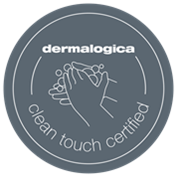In a word YES… No matter where you live or what the season, indoor or outdoor, the single best thing that you can do for your skin is to wear sunscreen every day of the year.
Photoaging damage to the skin caused by exposure to sunlight is responsible for up to 90% of visible changes to the skin. It is a direct result of the cumulative sun damage that you have been exposed to throughout your life. Collagen and other fibres that support the skin’s structure are being damaged leading to fine lines, wrinkles, loss of plumpness / firmness and hyperpigmentation.
UV rays are present all year round even on cold, cloudy days. The UV radiation that affects the skin is composed of two different types of waves, UVA and UVB. Simply put UVA causes ageing, UVB causes burning. UVA rays are clearly the most damaging and account for 95% of UV that reach the earth. They are the same strength all year round and can penetrate your skin through glass even on a cloudy day. When UVA rays hit the skin, they damage its DNA and cells in the dermis scramble to provide melanin in the epidermis to prevent further damage. This is the process that gives you a tan, it’s your skin attempting to block the radiation from penetrating your skin.
UVB rays are shorter than UVA rays and are responsible for burning and play the greatest role in causing skin cancers.
When purchasing sunscreen look for a broad-spectrum sunscreen that provides not just protection from UVB radiation but also UVA protection. Whether you prefer a chemical or a physical sunscreen is entirely up to you. Chemical sunscreens absorb UV radiation and convert the light energy into heat which dissipates. Physical sunscreens are mineral based and reflect light away from the skin. This is generally favoured by people with sensitive skin or sensitivity issues. You can of course have an element of both in your sunscreen.
With people spending more time on devices, blue light is also playing its role in photoaging. Blue light or high-energy visible light can be felt as heat on the skin. Hence that warm feeling you get in your skin if you’ve had your phone held to your face for a long period of time.
Studies have shown that the Blue light can deeply penetrate the skin causing damage to our collagen and elastin. Results also indicate that exposure to Blue light at night can throw the skin’s natural circadian rhythm out of sync causing skin cells to continue to think its daytime impacting on their natural night-time repair process which can lead to visible signs of aging and even dark under-eye circles.
Apply sunscreen 30 minutes prior to exposure and reapply every 2 hours after exercise, sweating or swimming. For everyday use with minimal or no direct exposure, a single application is sufficient.
Applying adequate sunscreen is also important. 5ml or a teaspoon should be used for face, neck and chest. 30ml which is approximately a shot glass full, should be used for a full body.
There is really no reason for photoaging. We can keep skin looking good for decades if we just take care of it.


